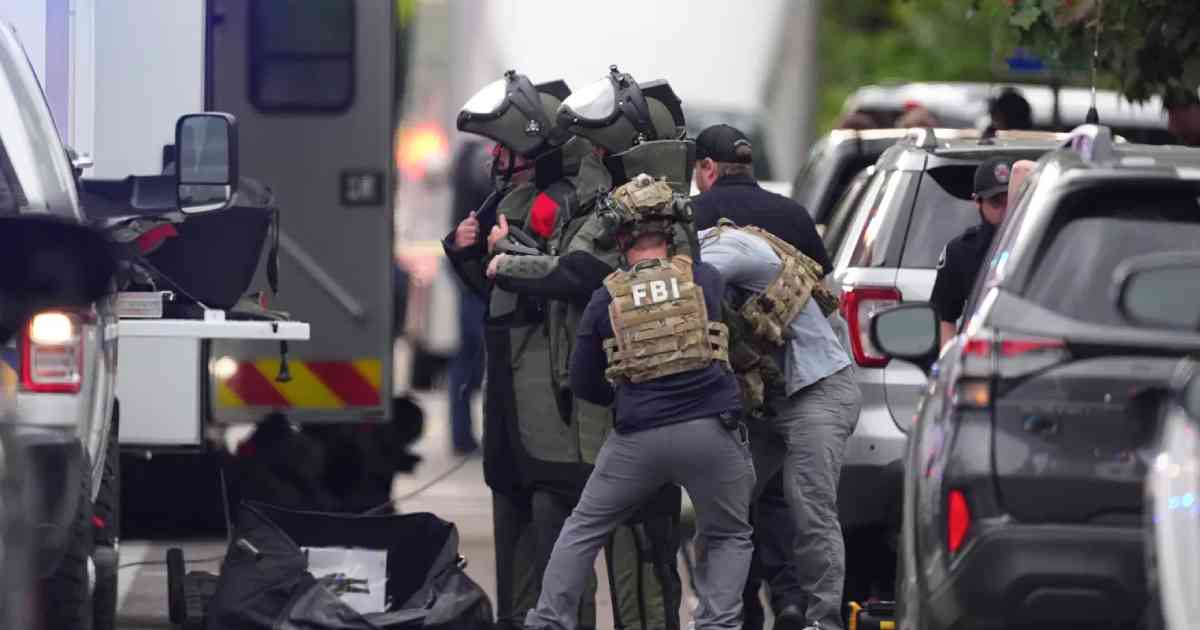BOULDER, Colo. — A recent attack in Colorado has reignited national discussions over U.S. immigration policy and the vetting of individuals who overstay visas or apply for asylum. Critics and policymakers are calling for stronger safeguards following a violent incident at a pro-Israel rally that left a dozen people injured.
On June 1, Mohamed Sabry Soliman, a 45-year-old Egyptian national, allegedly threw multiple Molotov cocktails into a crowd gathered for a weekly demonstration in support of Israeli hostages held by Hamas. Soliman reportedly shouted political slogans and later told investigators he intended to “kill all Zionist people” and would do it again if given the chance, according to an FBI affidavit.
Authorities say Soliman entered the U.S. legally on a B-2 tourist visa in 2022, which expired in February 2023. He then applied for asylum and was granted a work permit that has since lapsed. His wife and five children, also in the U.S. under questionable immigration status, were taken into custody by federal immigration authorities and are reportedly facing expedited deportation proceedings.
While federal officials have not charged any of his family members with wrongdoing, Homeland Security Secretary Kristi Noem stated that authorities are investigating whether the family had prior knowledge of the attack or provided any form of material support.
Immigration Policy Under Scrutiny
The case has sparked renewed criticism of what some describe as lax enforcement under current immigration laws. Conservative commentators and lawmakers argue that the U.S. immigration system is failing to properly vet and monitor those entering or overstaying visas—especially amid ongoing concerns about national security and domestic extremism.
“This is another example of why immigration enforcement needs common-sense reform,” said former NYPD Commissioner Ray Kelly. “We try not to recruit our problems. The same principle should apply at the border.”
Opponents of the Biden administration’s immigration stance have pointed to the attack as an example of broader systemic failure. Former President Donald Trump responded to the incident by calling for stricter immigration enforcement and faster deportation for individuals who pose public safety threats.
“Sunday’s attack is yet another example of why we must keep our borders secure and deport illegal, anti-American radicals,” Trump posted on Truth Social.
Supporters of tougher policies argue that even if only a small percentage of those entering illegally commit crimes, the scale of recent immigration flows increases the risk. According to DHS estimates, more than 7 million migrants have entered the country during the Biden administration, including hundreds of thousands who overstayed visas or crossed the border between ports of entry.

Boulder County Sheriff’s Office/AFP via Getty Images
Immigration, Crime, and the Data Gap
Experts caution, however, against drawing sweeping conclusions from isolated cases. Multiple studies, including those from the Cato Institute and the National Academy of Sciences, have shown that immigrants—both legal and undocumented—tend to commit crimes at lower rates than native-born citizens.
Still, analysts warn that the enormous scale of recent migration underlines the importance of vetting and follow-through, particularly in cases involving asylum claims and expired visas.
The situation is further complicated by backlogs in immigration courts and the slow pace of asylum processing. Some cases take years to resolve, creating a gray area in which individuals remain in the country legally—but without final adjudication.
A Polarized Political Environment
The Soliman case comes at a politically charged moment in the U.S., as college campus protests over the war in Gaza, rising antisemitism, and record migration figures dominate headlines.
Some politicians have also called for stricter oversight of foreign student visas, noting that several protest organizers in recent months were international students. The Department of Education and the Department of Homeland Security are reviewing whether visa holders involved in unlawful activity may face revocation or removal.
Democratic lawmakers have urged caution, warning against equating immigration status with criminal intent. Civil rights organizations also warn of an overcorrection that could unfairly target peaceful migrants and asylum seekers.
Still, the attack in Boulder has shifted the tone in some policy circles, with moderates calling for new legislation to strengthen visa enforcement, increase post-entry monitoring, and tighten asylum review processes.
As for Soliman, he remains in custody awaiting a June 5 court hearing, where prosecutors are expected to formally charge him with attempted murder, hate crimes, and weapons-related offenses. Two of the 12 victims remain hospitalized with serious burns.




